THE IMPORTANCE OF COMPRESSIVE STRENGTH IN INDUSTRIAL INSULATION APPLICATIONS
When considering insulation materials, compressive strength is often overlooked as a distinguishing feature in the choice of insulation materials; however, compressive strength of foam cellular glass insulation is needed to support loads in many applications such as tank bases, underground piping and vessels, pipe supports and hangers. Compressive failure of insulation materials can cause deterioration of the insulation system and lead to damage of mechanical systems and equipment.
HUAYUE® cellular glass insulation is available in grades to cover a wide range of compressive strength requirements. From HUAYUE® HY500™ and HY800™ insulation, commonly used in piping and equipment applications, and six standard grades of HUAYUE® HLB (high-load bearing) insulation products with average declared compressive strengths ranging from 800 kPa (116 psi) to 2400 kPa (348 psi). Minimum lot average values when tested in accordance with ASTM C240 / ASTM C165 or EN 826 Annex A per ISO 3951.
Low-Temperature Tank Base Insulation
In low-temperature applications or cryogenic tank bases, weak or compressible insulation materials may result in unacceptable settlement, and decrease of thermal insulation performance. This can lead to ground heaving and foundations being brought to temperatures that could result in system failure. Ultimately, rupture in the steel bottom of a tank could occur with a subsequent loss of containment.
Applying HUAYUE® HLB insulation under a cryogenic tank can help to control heat gain and reduce the risk of system failure.
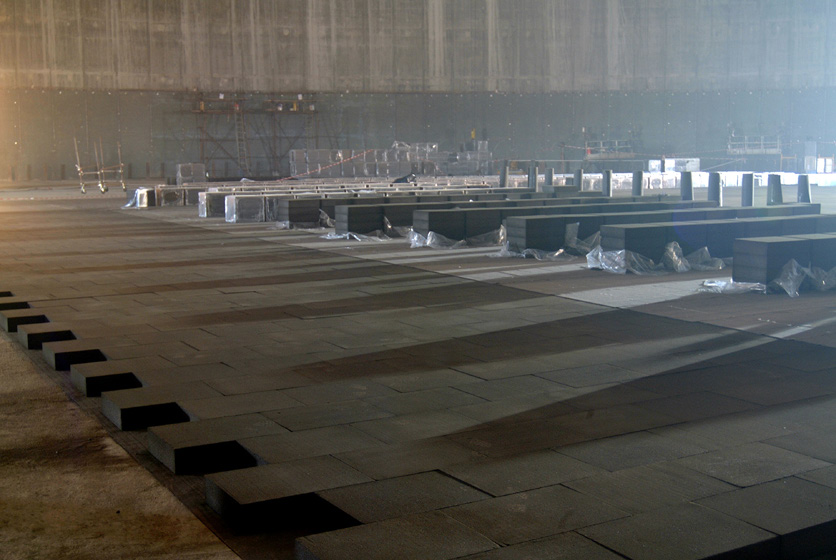
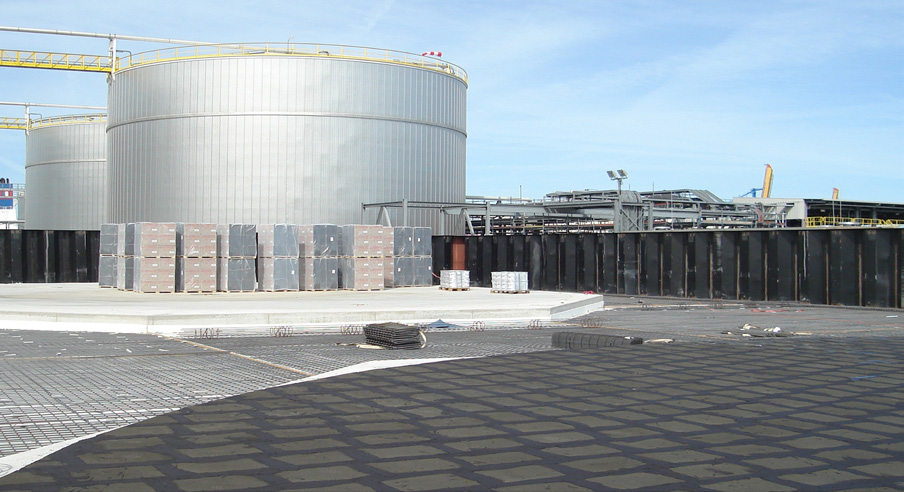
High-Temperature Tank Base Insulation
For high-temperature tank bases, weak or compressive insulation materials can also lead to settlement and a decrease of thermal insulation performance, which may result in poor process control, increased viscosity or solidification of process fluids.
Applying HUAYUE® HLB insulation beneath a high temperature tank can also help to protect the structural concrete foundations against high temperatures, thus reducing the risk of system failure, and allowing for more efficient, cost-effective foundation.
Direct-Buried Insulation Systems
For direct-buried, underground pipe and vessel insulation, compressive strength is necessary to protect against the pressure of the surrounding soil and vehicle loads. Applying load-bearing HUAYUE® insulation helps to ensure that the insulation system does not compress, which could reduce the thermal efficiency and degrade the overall performance of the system. When properly designed with HUAYUE® insulation and accessories, these systems permit above-ground traffic without negative impact on the insulation or the process system.
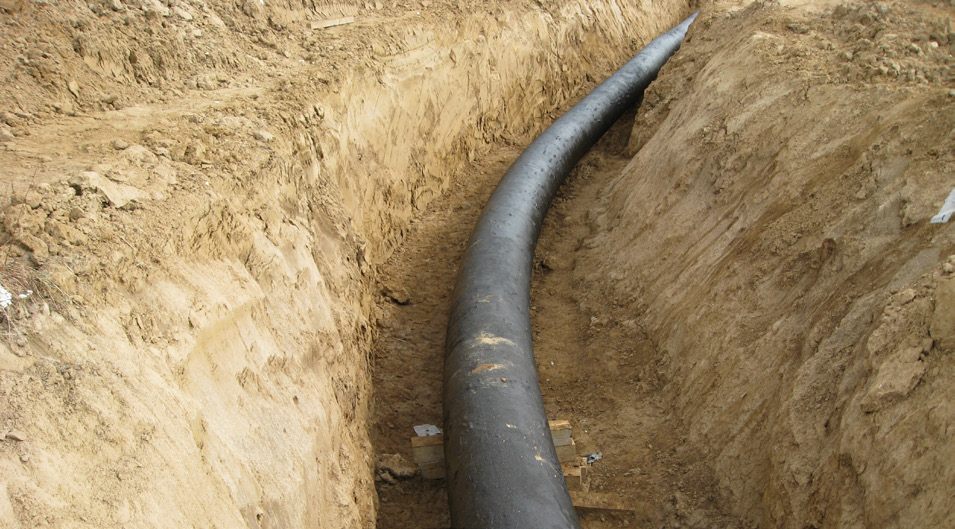
Pipe Supports and Hanger Systems
For insulated pipe supports and hangers, an insulating material with high compressive strength enables the designer to place supports on the outside diameter of the insulation system, reducing the potential for thermal breaks in the system.
If one or more insulated pipe supports fail, it can lead to an uneven, or improperly distributed load. This may result in overstress situations throughout the piping system. This is particularly undesirable at the most sensitive points in the piping system such as flanges, nozzles and fittings where risk of leak or rupture is higher.
Proper design with a HUAYUE® insulation system helps to ensure that adequate compressive strength is available to support the system.
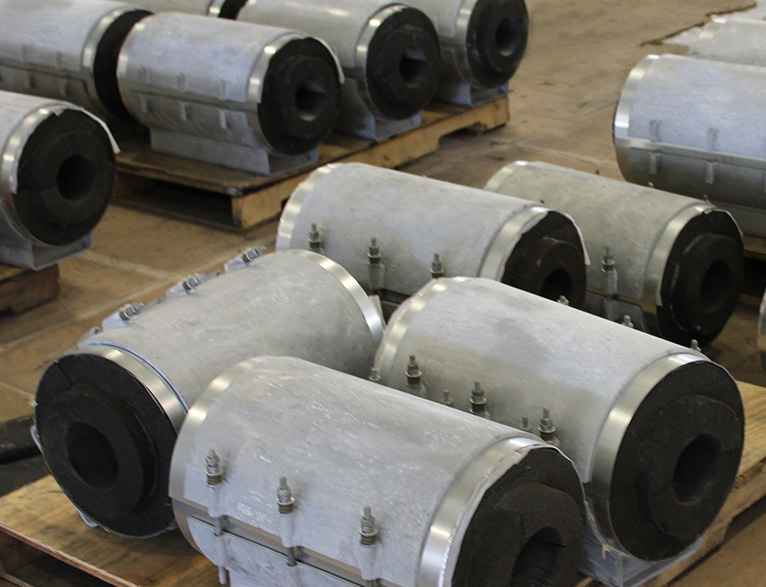
Mechanical Resistance
Insulated piping can be subjected to types of mechanical abuse and point-load situations where compressible insulation materials may not maintain their integrity.
This can result in damage to vapor barriers and protective jacketing, and the thermal performance and overall functionality of the system may be impacted.
Applying a load bearing HUAYUE® insulation system can help to protect against such abuse.
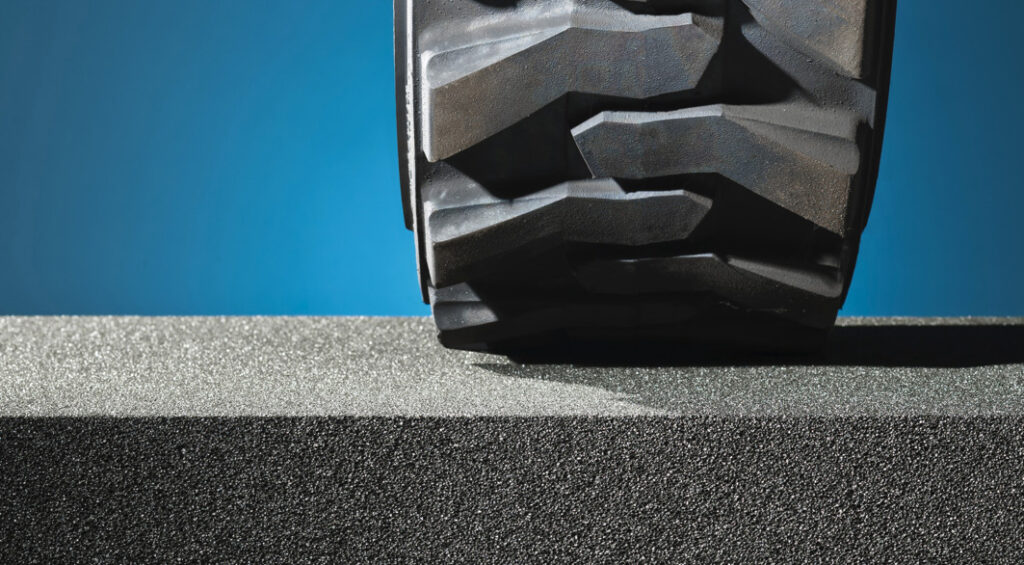
Compressive Strength Standards & System Design
HUAYUE® insulation has undergone extensive third-party compressive strength testing against industry standards including, but not limited to, ASTM C165, Standard Test Method for Measuring Compressive Properties of Thermal Insulations and EN 826, Thermal insulating products for building applications — Determination of compression behavior. These tests are used by insulation manufacturers to characterize compressive strength/resistance of their insulation products.
Capped samples were loaded, by use of an Instron hydraulic testing machine, until failure. The applied load at failure was recorded and the compressive strength calculated dividing the failure load by surface area.
All HUAYUE® insulation grades easily met the acceptance criteria of ASTM C552-17 Standard Specification for Cellular Glass Thermal Insulation and / or the values declared according to EN 14305 Thermal insulation products for building equipment and industrial installations. Factory made cellular glass (CG) products.

Ancillary Capping Materials – Testing, Design and Application
Compressive strength is the capacity of a material or structure to withstand loads. This term is often used to refer to compressive properties of rigid materials.
For HUAYUE® insulation, the compressive strength is determined using a capping procedure described in ASTM C240 Standard Test Methods of Testing Cellular Glass Insulation Block.
Different capping materials do not change the compressive strength of the insulation material, but the result of the test may differ due to the influence or interaction of the capping material with the insulation substrate. This influence should be considered in material testing, insulation system design, and application. Always consult the design firm for appropriate ancillary capping materials for your load bearing application.

Influence of Temperature and Time
Specifiers should be aware of the potential adverse effects of long-term creep and strength variations with temperature on various insulation substrates and ancillary materials.
Compressive creep is the tendency of a solid material to move slowly or deform permanently under the influence of persistent mechanical load.
The compressive properties of HUAYUE® insulation are consistent over time and across a wide range of service temperatures.

Deformation and the Safety Factor
Different types of insulation materials will behave differently under compressive loads.
Because deformation and resulting strength reduction can seriously impact performance of some compressible insulations, the use of a safety factor in insulation system design with respect to compressive strength is a common practice.
Designers often do not risk tolerating a 10 to 20% deformation number, which is why an additional safety factor is applied to compensate for the designed load.
The specification of the design firm involved in the project should be consulted, as many firms have their own corporate specifications that differ from one another in this aspect.

THE HUAYUE® INSULATION SOLUTION
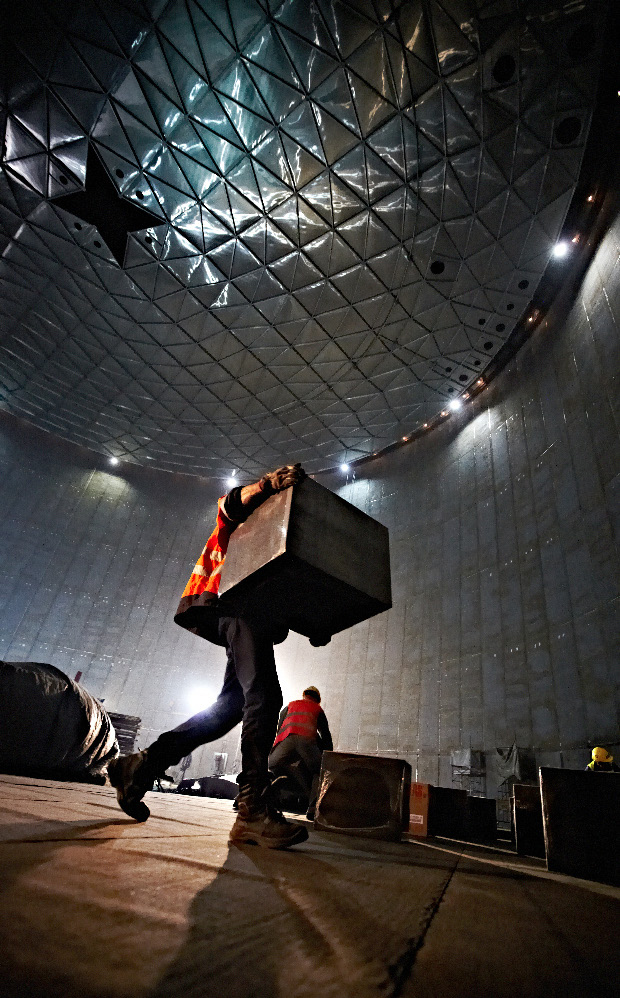
From the standpoint of compressive strength, HUAYUE® insulation is remarkable in many respects. Properly designed HUAYUE® insulation systems can withstand high loads with little or no deformation. HUAYUE® insulation retains its compressive strength over time across a wide service temperature range. It is ideal for a variety of load bearing insulation applications such as tanks bases, pipe supports, underground / direct buried piping and equipment.
HUAYUE® High Load Bearing (HLB) insulation is produced in a variety of grades to meet specific requirements for a wide range of load bearing insulation requirements. Even though HUAYUE® HLB insulation has proven to carry high loads with no deformation, historically, many load bearing applications with HUAYUE® insulation have been designed with a safety factor based on the maximum working stress and the average compressive strength. The choice of safety factor is the responsibility of the design engineer in conjunction with the owner after a thorough consideration of the most severe prevailing or anticipated local design criteria. The compressive design should be based on the appropriate compressive values of the HUAYUE® insulation grade used in the application.
HUAYUE® HLB insulation’s combination of high compressive strength and superior insulation properties with a stable and a non-deteriorating insulation efficiency, helps ensure a constant thermal performance that remains unchanged over time. This has made it one of the preferred materials by tank builders across the world for decades.
